In the previous article, Soumaki mentioned carbohydrates and how to read carb labels on food packaging. Continuing, let's learn what is protein and how to have a healthy protein-rich meal in this article.
What is protein?
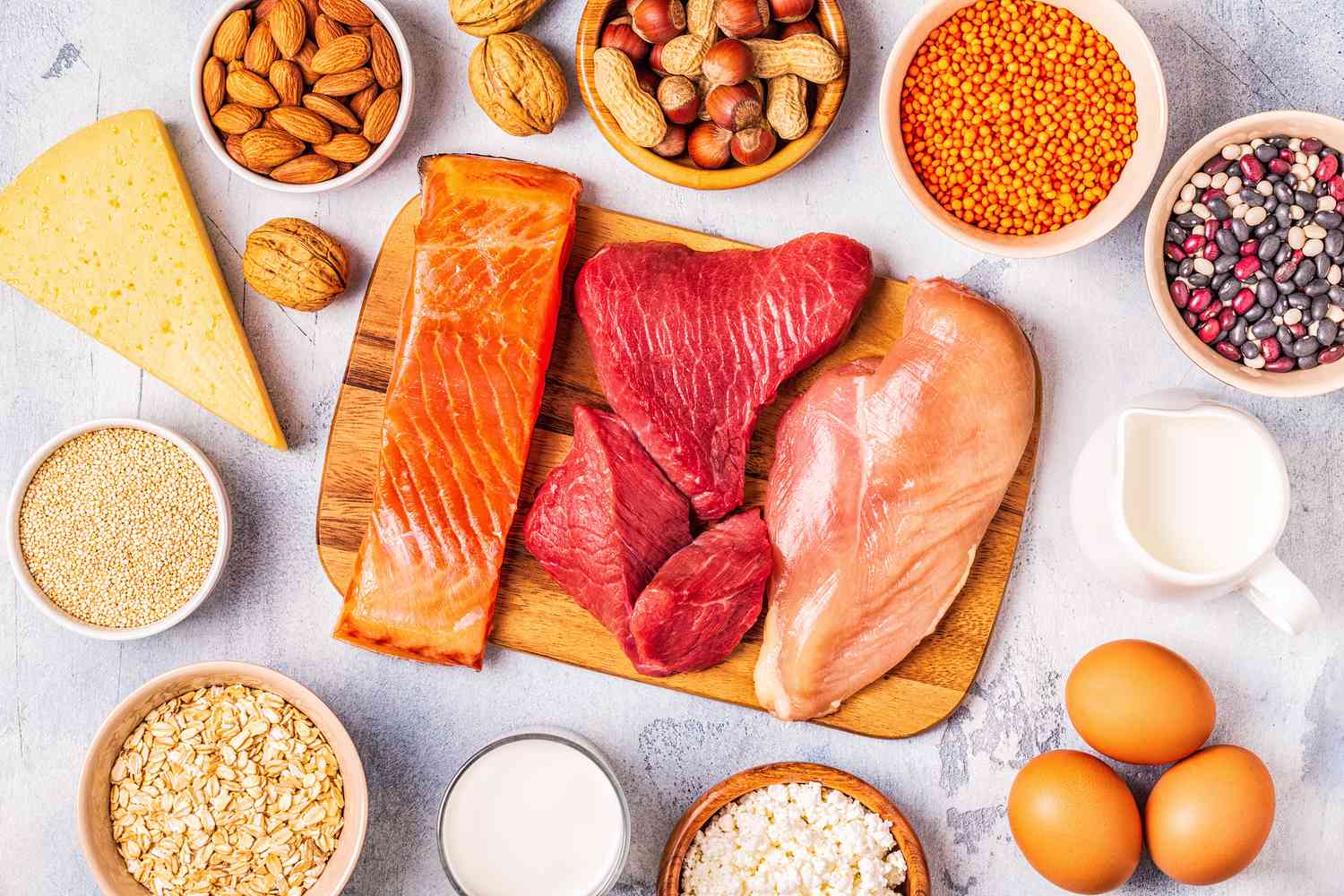
Protein (also known as protid or nitrogenous substance) is one of the three macronutrients in the group of essential nutrients. These nutrients include:
-
Protein: the name given to proteins composed of amino acids, which is the nutrient we will be discussing in this article.
-
Fat: mainly found in animal-based foods such as meat, eggs, milk, cheese, butter, fish oil, and soybean oil.
-
Carbohydrates: produced by separating starch from sources such as sugarcane or beets.
Protein has a complex structure and is made up of 20-22 different types of amino acids. During the process of food digestion, the body uses them to create cells for various purposes, including:
-
Participating in the regeneration of muscle and bone tissue.
-
Synthesizing and maintaining enzymes and hormones in the body, supporting thousands of biochemical reactions within and outside the cells.
-
Forming Keratin, Collagen, and Elastin - important components that make up the structure of skin, hair, and nails.
Trend of consuming more protein after the Covid-19 pandemic
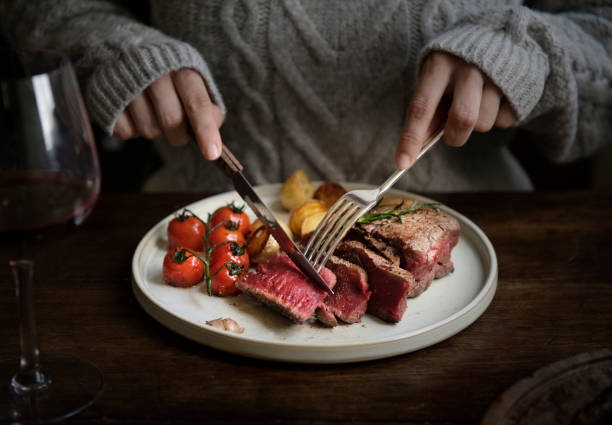
After the Covid-19 pandemic, many people have realized the importance of taking care of their health and lifestyle. They believe that increasing protein intake in their diet will help them maintain good health and lose weight effectively. Therefore, a high-protein diet has become more popular than ever before.
According to a recent Nielsen survey on health, 60% of shoppers said they are trying to increase their protein intake in their diet. our daily meals do not lack protein to the extent that we need to worry excessively about it. If your daily meals include meat, fish, eggs, milk, etc., you do not need to worry about protein deficiency.
It is not reasonable to worry and obsessively consume only a few types of nutrients while ignoring the balance of all essential macronutrients and micronutrients in the body. Consuming too much protein can lead to weight gain, kidney damage, and an increased risk of heart disease.
How much protein does the human body need per day?
The amount of protein needed by the body varies depending on individual needs. For example:
-
A sedentary person who engages in light activities and exercises minimally needs between 0.8g protein - 1g protein per kg of body weight per day.
-
A person who regularly exercises or engages in weight training needs between 2g protein - 3g protein per kg of body weight per day.
-
The required amount of protein also varies depending on gender and specific goals.
Here are some suggestions for protein intake depending on gender and goals:
-
Women who want to tone muscles, gain muscle mass, and lose weight need between 2.2g protein - 2.6g protein per kg of body weight per day.
-
Men who want to tone muscles, gain muscle mass, maintain muscle mass, lose fat, and improve endurance need between 2.3g protein - 3.3g protein per kg of body weight per day.
The Ministry of Health in Vietnam compiled and updated a nutrition recommendation table in 2015, which you can refer to for appropriate energy intake based on age and dietary intake.
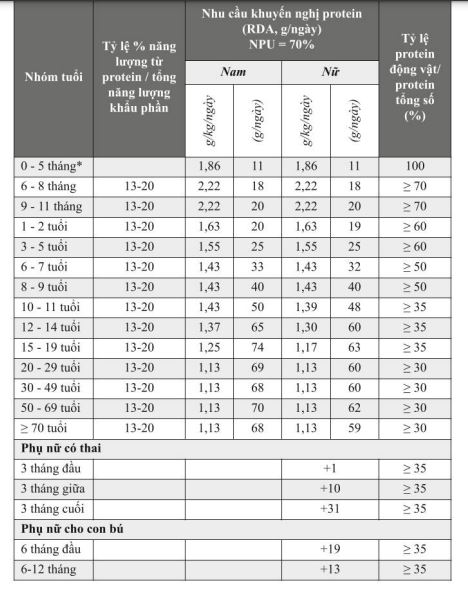
Building a protein-rich meal with Soumaki
Let's learn how to build a protein-rich meal with Soumaki.
1. High-protein foods
Protein-rich foods are nutritious and have fewer saturated fats and calories. Examples include lean meat, seafood, beans, soybeans, low-fat milk, eggs, and nuts. You should replace lower-protein foods with high-protein options. For example, you can have salmon or other omega-3-rich fish, beans or lentils for fiber and protein, or add walnuts to your oatmeal.
Here is a table of the protein content in everyday foods, which you can use to ensure you are consuming enough protein.
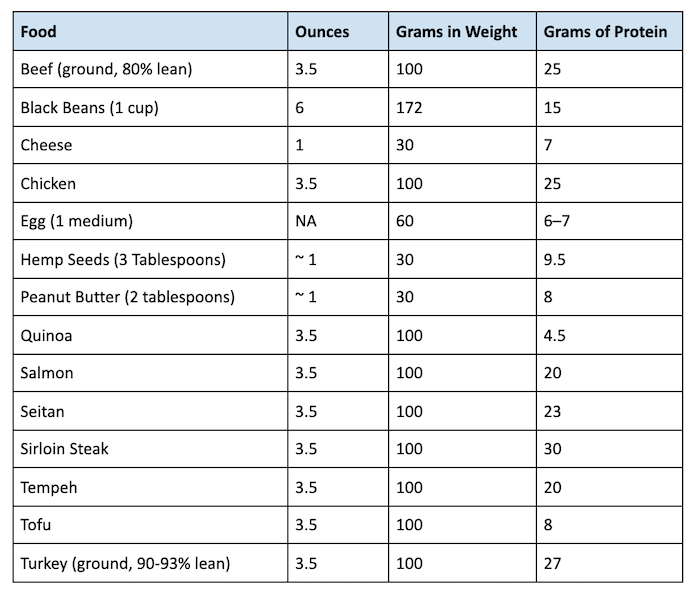
2. Balance Nutrients
A protein-rich meal should not only consist of protein but also contain other essential nutrients. At least 20% of the total energy required should come from protein-rich foods. You can balance your diet by starting with the following nutrient ratios:
-
30% of total energy from protein
-
30% of total energy from healthy fats
-
40% of the remaining energy from carbohydrates
When adding protein to your diet, remember to also supplement your meals with carbs and healthy fats.
Carb-containing foods:
-
FruitsVegetables
-
Grains
-
Beans and legumes
-
Low-fat milk and yogurt…
Healthy fat-containing foods:
Read more: What are carbohydrates? How to read carbohydrate content on food packaging
3. Building a nutritious meal with Soumaki
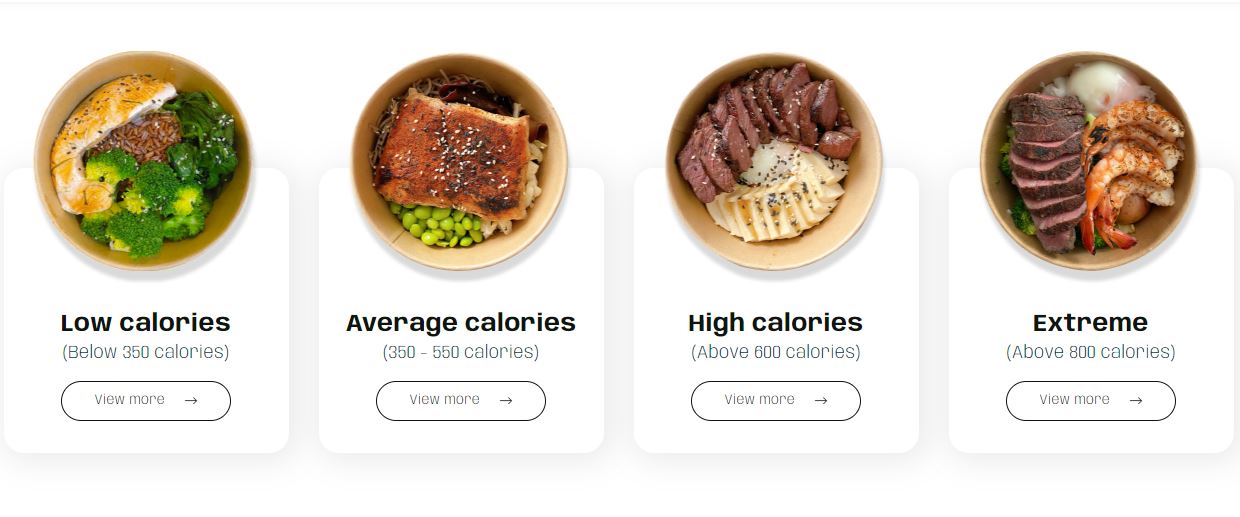
At Soumaki, we offer meals with detailed information on calorie, carb, fat, and protein content. We also provide meals categorized by calorie intake, with four specific levels to choose from:
-
Low calories: meals under 350 calories, suitable for those on a weight loss diet
-
Average calories: meals from 350 - 550 calories, suitable for maintaining a healthy daily diet and weight loss
-
High calories: meals over 600 calories, suitable for those who engage in regular physical training and want to lose fat and gain muscle
-
Extreme calories: meals over 800 calories, suitable for those who want to gain weight and supplement high-calorie intake per meal
Come and experience our nutritious and protein-rich meals with a balanced nutrient intake at Soumaki. We guarantee that our restaurant's meals will not disappoint you.